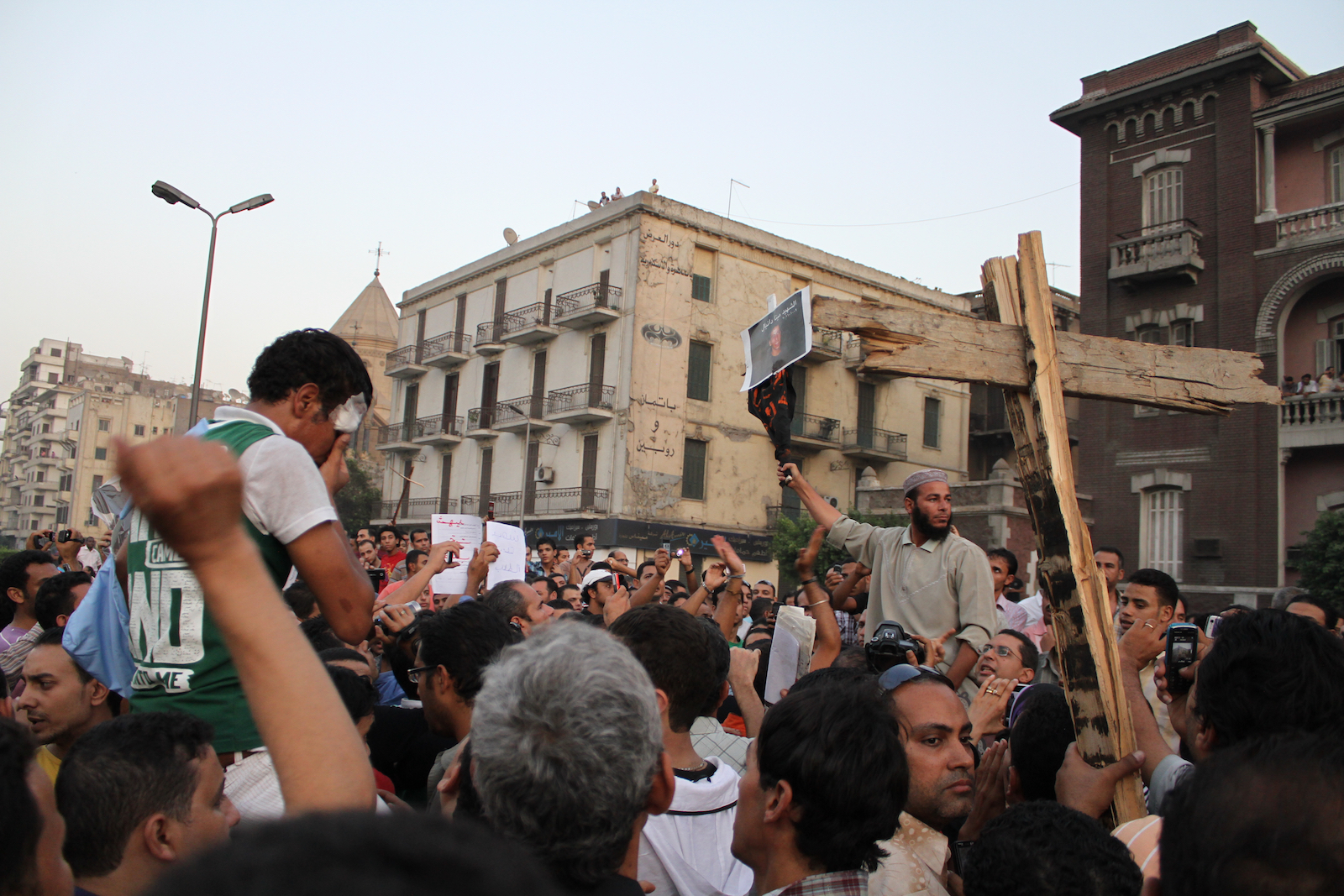
Culture
After Morsi, Injustice Persists for Egypt’s Copts
Across the street from my cousin’s apartment in Rod al-Farag, an area of Cairo’s popular Shubra district hangs a large banner depicting the late Coptic Pope, Shenouda III. The caption is not a quintessential spiritual saying, or biblical quote, but a message directed at the Muslim residents of the area. “To all Muslims” the note reads, “thank you for your support in times of grief.” Comparable signs of harmony were voiced during Shenouda’s funeral, three days after his passing. In a tribute to the deceased Pope, a senior cleric said, “it is because of him that we have national unity with our Muslim brothers.”
The words recollected the efforts Shenouda had made to bolster interfaith ties in the country. One of the measures he carried out during his pontificate was a ban preventing the Copts from visiting Jerusalem. “Except with our brothers the Muslims, following its liberation [of Jerusalem].” Conversely, at the same time of his passing, violence against Egypt’s Christians was on the rise again. The broad union, that had unified Muslims and Christians in the 2011 uprising against Hosni Mubarak, also, has mostly ended.
Reconciliation
Likewise, in the months after Mubarak’s downfall, the volatile political situation further cemented the position of the Christian minority. After the infamous bombing of Alexandria’s Qediseen Church, days before the protest against Hosni Mubarak was initiated, assaults continued to take place under Field Marshal Tantawi (and later under his successors Morsi, and Mansour). The height of the sectarian violence was reached in the days following the dispersal of two pro-Muslim Brotherhood sit-ins in Cairo on August 14th. More than 40 churches (and many more houses and shops) were torched. As in the case of the bombing of the Qediseen church, most of the ravaged churches and battered families still wait for any form of reparation.
Yet, the larger, mediated attacks only form the tip of the iceberg. In less covered attacks, Copts have proven to be even more vulnerable. Forced expulsions, child abductions, raping, drive-by shootings, murder, and other crimes against Egypt’s Christian minority are widespread, with a higher incidence rate in the more rural areas of the country. Citing “a lack of evidence,” the state apparatus often fails to bring justice, leaving the culprits virtually untouched.
The Egyptian Initiative for Personal Rights has found that Christians have been forced to renounce their right to justice, and accept the result of so-called “reconciliation sessions.”
During these informal meetings, local officers and religious leaders gather, forcing the victim(s) to “reconcile” with the offender(s) in the presence of local media. Among the procedure’s critics is Bishop Makarios of Minya, an area in Upper-Egypt infamous for its sectarian violence. The traditional hearings “fail in dealing with the root of the problem…Hands are shook before the media, greetings, and smiles were exchanged, while hearts remained filled with hate” he told Al-Monitor.
A new republic?
When it was voted on in early December 2013, Egypt’s amended constitution reflected little progress. While the revised document enhanced the status of the state apparatus, Egypt’s religious minorities only saw minor advancements. An article stipulating the “absolute freedom of belief” was introduced but only pertains to the three monotheistic beliefs excluding followers of the Shia Muslim tradition. Copts who were promised that “all barriers to building churches” would be eliminated were disappointed when a final decision on this symbolic dossier was yet again put off.
Article 235 of the Constitution states that the House of Representatives is ordered to “issue a law aimed at regulating the construction and restoration of churches in a way that ensures that Christians perform their religious rites freely.” There is, however, little doubt that a breakthrough will take place. Since 1952, Copts have struggled to obtain the needed warrant to build, renovate, or even patch up a church’s toilet which requires the authorization of the country’s president.
Paying lip service to the Coptic issue, high officials including president Adly Mansour, former interim premier Hezam Beblawy, and presidential candidate Abdul Fatah al-Sisi have met with the Coptic Pope Tawadros, a strong supporter of the July 3rd military takeover. However, it remains to be seen to what extent real progress will take place in a post-Sisi Egypt. For now, impunity and sectarian violence persist throughout the country.
If Egypt’s new rulers want real change, they must start by disclosing the correct size of Egypt’s Christian population, something the state has refused, to do (claiming there are only 6 million Copts). This step would afford the Copts a more accurate representation of their interests in the country’s institutions. The Copts too have a duty to rely more on party politics to channel their agenda. In time, the latter should replace the Coptic Pope as the voice for co-religion in political affairs and contribute to a more pluralistic Egypt.
